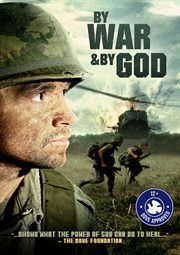Review by Booklist Review
*Starred Review* The ocean is a great being ; each whale is a planet, so much life does it sustain. These are truths Thomas and Ruth's Northwest Pacific Coast tribe once held as self-evident. Sweethearts since childhood, they each inherited a working intimacy with the ocean, and their marriage is joyful until Thomas goes off to fight in Vietnam. Ruth is pregnant when he leaves, and when he doesn't return, she devotes herself to their son, who possesses the old gift for communing with whales. Thomas reappears when his fellow Vietnam vets decide to break the ban on whale hunting, hoping to reclaim his legacy as the grandson of a legendary whale hunter. But the others are motivated by greed, and tribal traditions are grievously desecrated. Hogan, a poet, essayist, and quintessential econovelist (Power, 1998), dramatizes the interconnectivity of cultural extinction, environmental destruction, and war as she parallels Ruth's courageous defense of the living world with Thomas' suffering and secret life in Vietnam. She also links the near genocide of aboriginal peoples with the near extinction of marine life. Deeply ecological, original, and spellbinding, Hogan ascends to an even higher plane in this hauntingly beautiful novel of the hidden dimensions of life, and all that is now imperiled.--Seaman, Donna Copyright 2008 Booklist
From Booklist, Copyright (c) American Library Association. Used with permission.
Review by Publisher's Weekly Review
In telling a story of the fictional A'atsika, a Native people of the American West Coast who find their mythical origins in the whale and the octopus, Hogan (Mean Spirit) employs just the right touch of spiritualism in this engrossing tale. When Thomas Witka Just succumbs to peer pressure and joins the army, then is sent to Vietnam, Ruth Small is pregnant with his child. In an attempt to prevent an atrocity, Thomas kills fellow soldiers and deserts, ultimately blending into the Vietnamese culture and fathering a child, Lin, by Ma, a village girl. In the meantime, Ruth gives birth to their son, Marco Polo, who is said to have the same mystical whaling powers of Thomas's grandfather. Years later, following Thomas's return, Dwight, a ne'er-do-well friend of Thomas's, arranges for the tribe to kill a whale and to sell the meat to the Japanese, a plan that will draw in Marco Polo and set up a confrontation between the whole ensemble. Despite the plot's multiple strands, the story flows smoothly, and Hogan comes up with a powerful, romantic crescendo. (Aug.) (c) Copyright PWxyz, LLC. All rights reserved All rights reserved.
(c) Copyright PWxyz, LLC. All rights reserved
Review by Library Journal Review
Feeling like a stranger as he returns to his Native American village, Vietnam vet Thomas Witka is surprised to find his tribe debating the wisdom of hunting whales once again. With a Southwest tour. (c) Copyright 2010. Library Journals LLC, a wholly owned subsidiary of Media Source, Inc. No redistribution permitted.
(c) Copyright Library Journals LLC, a wholly owned subsidiary of Media Source, Inc. No redistribution permitted.
Review by Kirkus Book Review
The latest from Pulitzer Prize finalist Hogan (English/Univ. of Colorado; Power, 1998, etc.) revolves around two Native Americans of the Pacific Northwest as they struggle to reconcile the tribe's time-honored ways with those of the corrupt wider world. Thomas Just and Ruth Small seem destined for each other. His grandfather is Witka, legendary hunter-seer who in times of need disappeared into the depths and "spoke with the whales, entreated them, and asked [...] if one of them would offer itself to the poor people on land." Ruth, meanwhile, is born with gill slits and kept briefly in a zinc tub so she won't "drown in air." But soon after they're married in a tribal ceremony, Thomas--on a bender with friends--impulsively enlists and ships off to Vietnam, leaving behind not only Ruth but, it turns out, the son she's pregnant with. Horrified by what he witnesses in war, Thomas melts into the landscape of Vietnam, where he lives ten years as a rice farmer, even fathering a daughter. He returns to the States--but not home, not yet. After a sojourn in Hawaii, he hears the tribe is to embark on a whale hunt. Ostensibly a reassertion of traditional values, it's actually a cynical scheme, with the whale oil promised to profiteers; this whale will be not entreated but slaughtered. Thomas takes part in the hunt, during which his estranged son is murdered. (Gifted with some of his great-grandfather's ability, Marco tries to dissuade his fellows from killing a whale too small and timid, and pays with his life.) Thomas withdraws to taciturn solitude in his grandfather's house, and Ruth courageously tries to punish the wrongdoers and uphold the old ways. Hogan excels, early on, in laying out tribal lore, and the book nicely exemplifies the difficulty of maintaining A'atsika values in a world grown smaller, more venal, more violent. But the abstract, preachy voice palls, and Thomas remains elusive, more symbol than person. Portentous and didactic. Copyright ©Kirkus Reviews, used with permission.
Copyright (c) Kirkus Reviews, used with permission.

